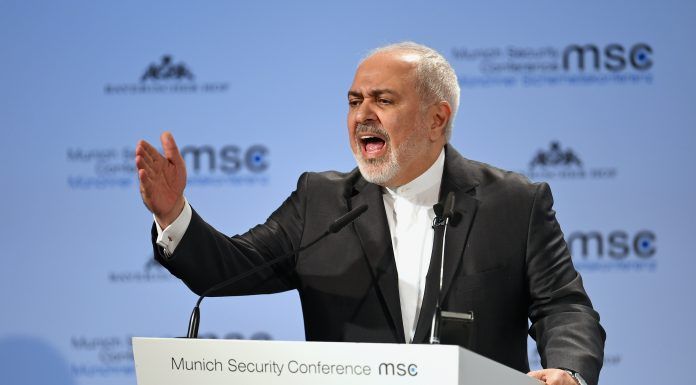STOCKHOLM, Aug 21 (Reuters) – Iranian Foreign Minister Mohammad Javad Zarif said on Wednesday Tehran may act “unpredictably” in response to the United States’ “unpredictable” policies under U.S. President Donald Trump.
Tensions between Tehran and Washington have risen since President Trump’s administration last year quit an international deal to curb Iran’s nuclear ambitions and began to ratchet up sanctions. Iranian officials denounced the new penalties as “economic warfare”.
“Mutual unpredictability will lead to chaos. President Trump cannot expect to be unpredictable and expect others to be predictable. Unpredictability will lead to mutual unpredictability and unpredictability is chaotic,” Zarif said in a speech at the Stockholm International Peace Research Institute (SIPRI).
Global commodity trading has been rocked in recent months after a series of attacks on international merchant vessels, which the United States has blamed on Iran, and the seizure of a British tanker. Tehran has denied the accusations.
Washington, which has by far the strongest Western naval contingent in the Persian Gulf, has been calling for its allies to join it in an operation to guard shipping in the Strait of Hormuz, a vital gateway for the world’s oil industry.
Zarif said: “Persian Gulf’s Arabs cannot achieve security (in the region) by spending billions of dollars on purchasing Western weapons… No amount of foreign military presence (in the Persian Gulf) can prevent insecurity.”
He added that Persian Gulf’s states should not seek to “buy security from outside” and denounced sending naval forces to the Persian Gulf.
“(If you) want to talk about security, don’t send flotillas to the Persian Gulf. This is a small body of water. By sending flotillas, you do not protect freedom of navigation, you impede freedom of navigation.”
So far, Britain, Australia and Bahrain have joined the U.S.-led security mission to protect merchant vessels travelling through key Middle East waterways.
“You cannot have an island of security by your fleet in the Persian Gulf when the United States is waging an economic war against Iran,” Zarif said.
(Reporting by Simon Johnson in Stockholm; Writing by Tuqa Khalid in Dubai; Editing by Toby Chopra, William Maclean)


